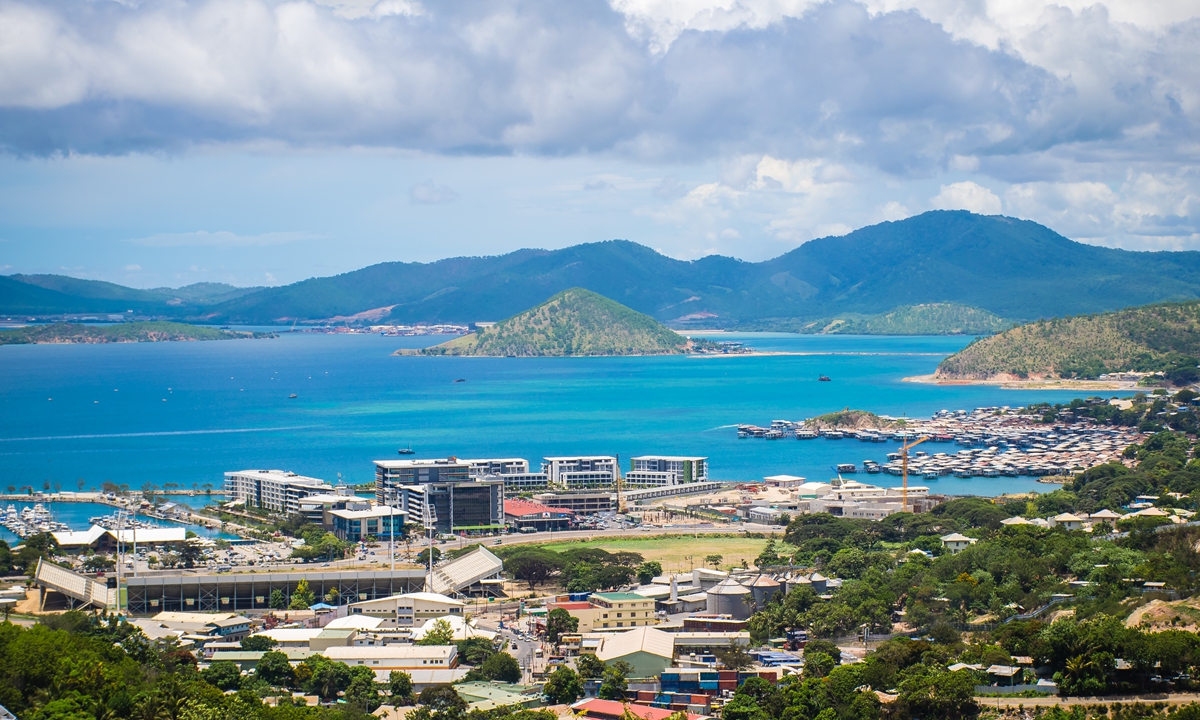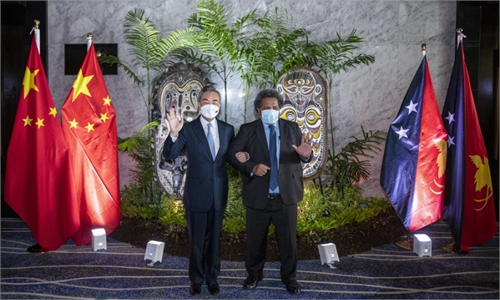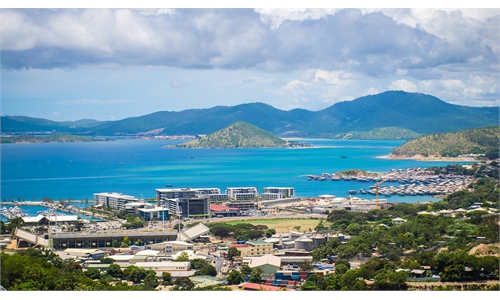Australian FM visits PNG nominally for cooperation to conceal veiled aim to sow discord through 'China debt trap' narrative, coercion

View of Port Moresby, the capital city of Papua New Guinea File photo: VCG
Australian Foreign Minister Penny Wong expressed Canberra's wish to have the "closest possible relationship" with Papua New Guinea (PNG) as she started her first visit to the South Pacific island nation on Monday after the new Labor government took office. Observers pointed out that while Wong's trip is nominally to enhance cooperation with PNG, it actually aims to drive a wedge between China and PNG, woo the island nation to the US-led camp containing China, and allow it to remain as a "big brother" in the region.
Wong touched down in Port Moresby on Monday, marking Labor's first trip to the country since claiming government back in May, Australian media outlet Sky News reported on Tuesday.
The foreign minister stressed the "importance" of Australia's relationship with PNG and providing ongoing infrastructure support to the neighboring nation amid concerns over its ties with China, according to the report.
Since December 2020, when China signed a $200 million fisheries deal with PNG, which is aimed at helping PNG to maximize its commercial fishing capacity in the area, cooperation between PNG and China has grown deeper. This deal was just one of the Chinese overseas investments in developing countries under the Belt and Road Initiative (BRI). In recent years, trade and investment cooperation between China and some Pacific island countries like PNG that have already signed up for the BRI has been strengthening on the basis of mutual benefits.:
Also, PNG and China agreed to deepen cooperation in energy, fisheries, communications and health during a visit by Chinese State Councilor and Foreign Minister Wang Yi in June, according to a statement released by the Chinese Foreign Ministry.
But the series of cooperation agreements between China and Pacific island nations based on mutual trust and equality have struck a nerve with Canberra especially after China signed a security pact with the Solomon Islands, another island nation in the Pacific, earlier this year.
Wong claimed that Australian aid in the Pacific comes with "no strings attached," the Guardian reported, noting this remark was "in a veiled reference to China's expanding power in the region."
The Guardian report claimed that "China is striking a range of deals in the Pacific and, in some cases, is offering large loans for infrastructure," in an apparent attempt to hype the fabricated "China debt trap" theory.
Wong's remarks highlight Australia's anxiety and awkwardness in the face of the need for economic development in Pacific island countries, Chen Hong, president of the Chinese Association of Australian Studies and director of the Australian Studies Centre at East China Normal University told the Global Times on Tuesday.
Australia and the US-led Western world want to sow discord between China and the island nations with the groundless and malicious "China debt trap" narrative and "China threat theory," as they try to drive nations into the US-led anti-China camp under the so-called Indo-Pacific Strategy, said Chen.
They fabricated the "China debt trap" theory, and attempted to use the Australian aid nominally with "no strings attached" to lure the island nations to jump into their "political trap," observers pointed out.
China has a long history of cooperation with the South Pacific region and has never imposed any political or other conditions. On the contrary, the US, Australia and their allies have always been ideologically driven, imposing Western systems and models on the South Pacific region by coercion, Chen noted. Although Papua New Guinea won independence from Australia in 1975, Australia never gave up its outdated mentality of colonialism and tried to remain as a "big brother" in the region, the observer noted.
According to media reports, Wong is set to take a similar message to Timor-Leste when she flies there on Wednesday.
In June, President of Timor-Leste Jose Ramos-Horta warned his nation will seek Chinese support if Australia and Woodside Energy - an Australian petroleum exploration and production company - fail to back a gas pipeline between the resource-rich Timor Sea and his country's southern shore, rather than Darwin, Australia, the Guardian reported.
Michael Leach, a professor in politics and international relations at Swinburne University of Technology and founder of the Timor-Leste Studies Association, was quoted by the Guardian as saying that "…China certainly provides smaller nations in our region with negotiating power and leverage with traditional partners they didn't previously have."
Chen predicted that this issue would be a major topic during Wong's visit to Timor-Leste as Australia worries that if Timor-Leste looks to Chinese investment to secure the island nation's "national strategic goal" of piping gas, not only the Australian petroleum company would suffer a loss in business benefits but also China would get closer with the island nation, which Australia is reluctant to see.
Chen warned the possible coercion by Canberra during Wong's trip over the issue.



